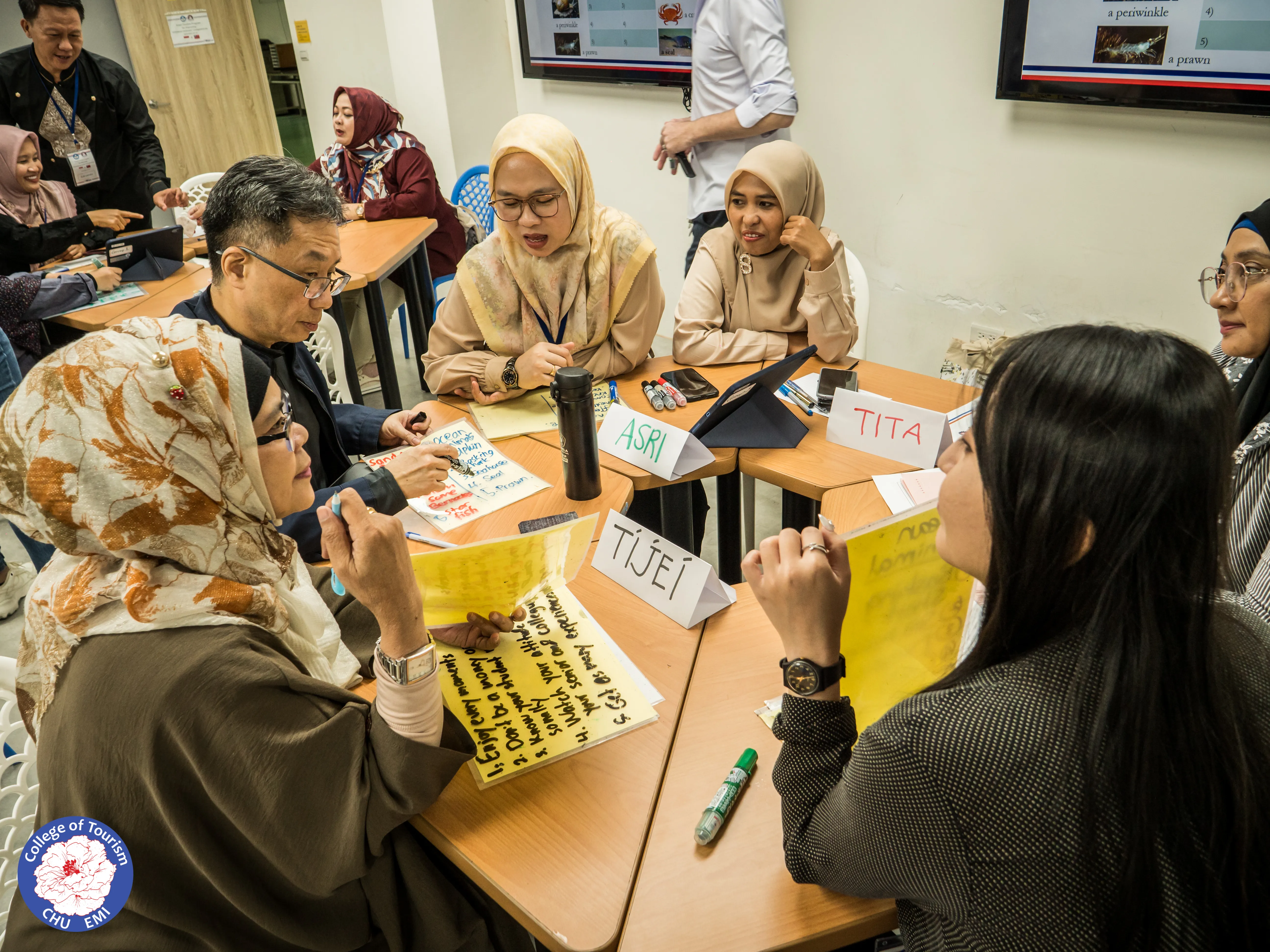Course Introduction: Smart Tourism and Teacher Training
The Ministry of Education, Culture, Research and Technology of Indonesia launched a prestigious initiative aimed at enhancing the global competencies of its leading training and teaching professionals. As part of this initiative, nine distinguished Indonesian teachers and trainers were selected from all over the country to participate in an intensive EMI and CLIL based training programme in Taiwan.
CHU’s College of Tourism was honored to be one of only two institutions in Taiwan chosen to host this program. Through its pioneering Smart Tourism and EMI initiative, CHU delivered a ten-day programme that featured a strong lineup of internationally accredited teacher trainers, faculty, and experts, and focused on the development and application of smart tourism in diverse contexts designed to promote international collaboration. The programme included a focused EMI training component designed to equip participants with innovative 21st-century teaching and learning pedagogies, which have been demonstrated to improve outcomes for students, teachers, and educational institutions. This component was led by the internationally recognized Cert PT team, under the guidance of the Course Director from English Total Immersion (ETI), Steven Murray.
The Cert PT internationally accredited training team provided an immersive training experience aimed at promoting the professional growth of the visiting trainers and teachers, fostering meaningful academic and cultural exchanges, and laying the groundwork for future collaborations in the rapidly evolving fields of teacher training and smart tourism.
Trainer Reflections – Key Themes and Insights
The six internationally accredited trainers involved in CHU’s Smart Tourism and EMI programme shared a range of valuable insights based on their experiences engaging with Indonesian university lecturers. Despite varying perspectives and teaching contexts, several strong, recurring themes emerged across their reflections:
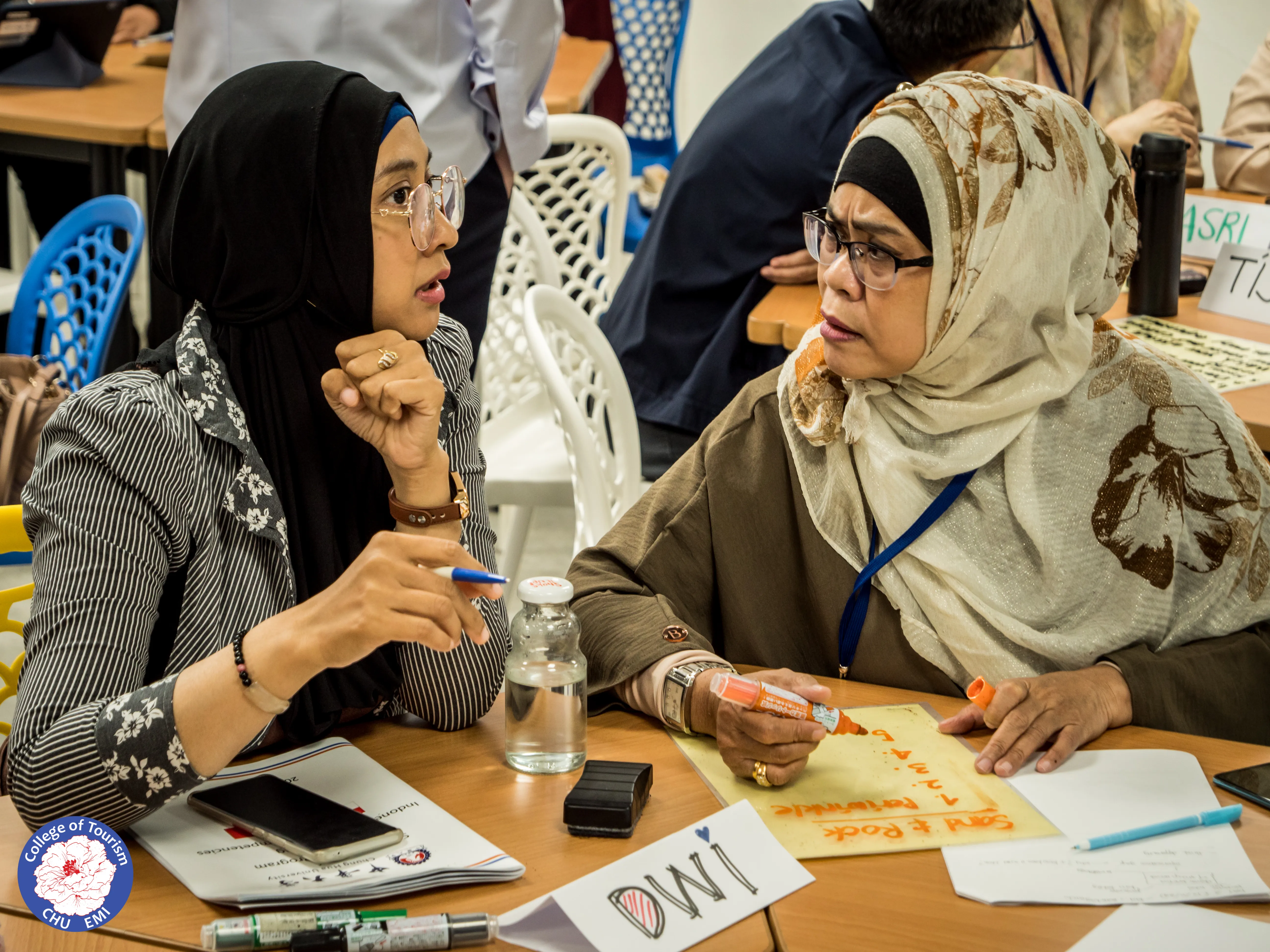
Mutual Learning Through Exchange
All trainers highlighted the value of exchanging EMI teaching ideas and strategies with the Indonesian participants. These interactions fostered rich dialogues around course design, classroom communication, and student engagement, leading to deeper understanding and fresh pedagogical perspectives applicable for both Indonesia and Taiwan.
Commitment to Lifelong Learning
The enthusiasm, openness, and willingness of the Indonesian lecturers to explore new approaches served as a powerful reminder that effective teaching requires the facilitation of long term professional development pathways. Trainers felt inspired by the participants’ eagerness to embrace innovative 21st-century pedagogies, and to learn from each other.
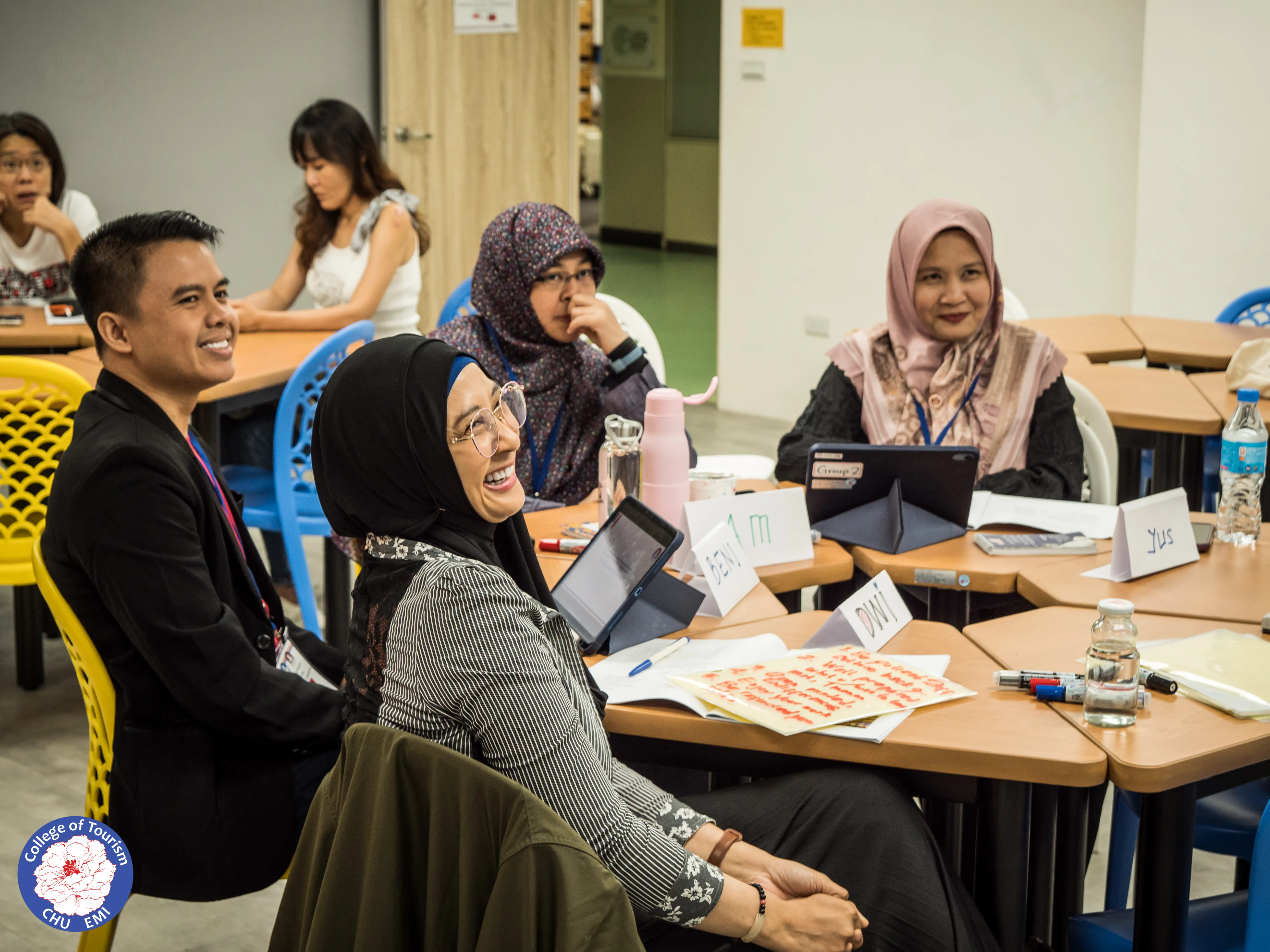
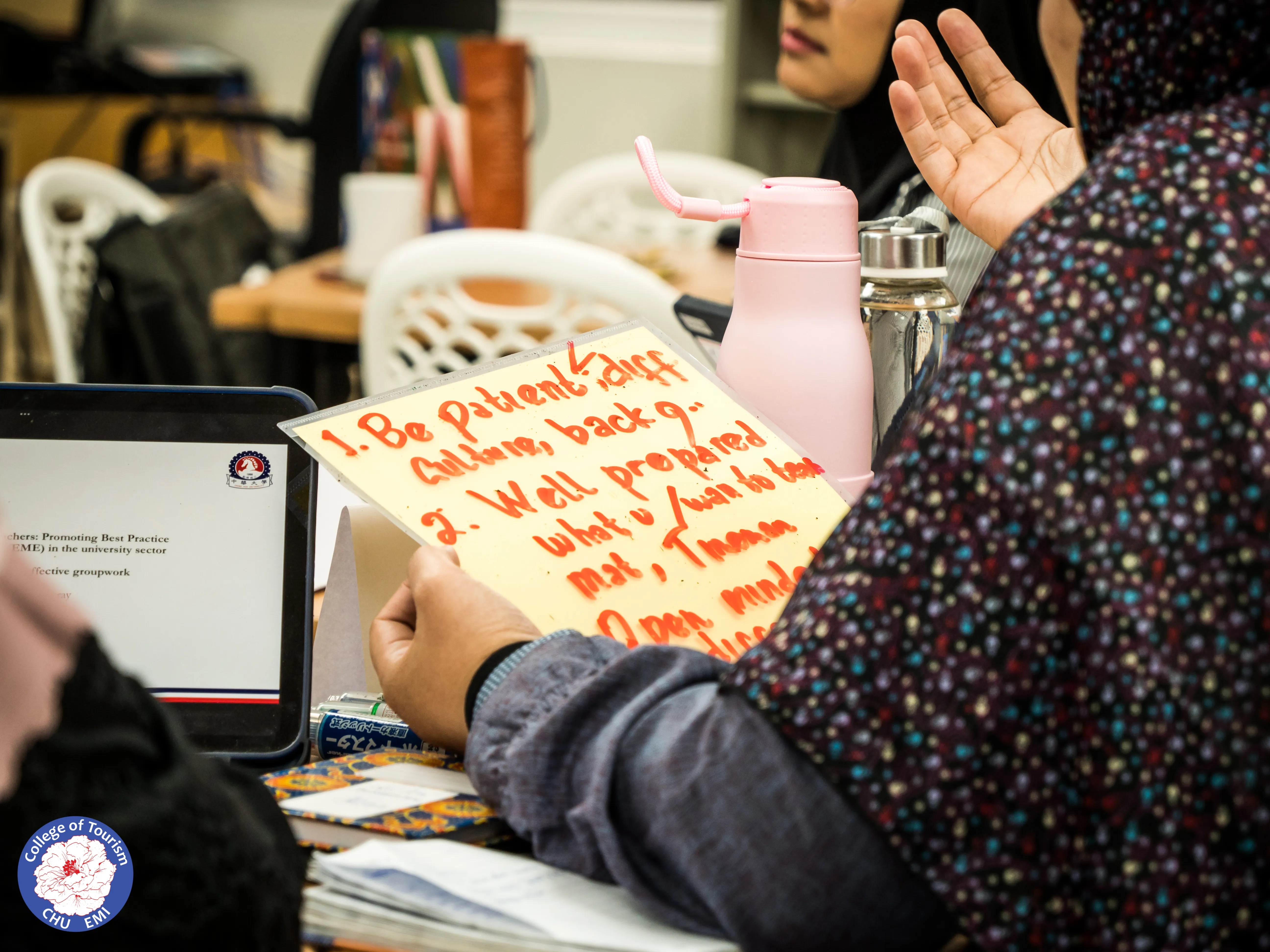
Common Challenges in EMI
Trainers identified several shared challenges in EMI teaching across cultural and institutional contexts most notably:
- Keeping students actively engaged.
- Encouraging communication in English among learners with varying proficiency levels.
- Balancing content delivery with language support.
These shared struggles underscored the universal nature of EMI challenges and the importance of collaborative problem-solving.
The Importance of Pedagogical Support
A key insight was the need for structured, relevant, effective and up to date EMI pedagogy. Trainers emphasized that EMI effectiveness goes far beyond translating content into English. Instead, success lies in areas such as:
- Developing linguistically and culturally relevant materials.
- Designing structured tasks and scaffolded activities.
- Creating a supportive and inclusive classroom environment that reduces student anxiety and builds confidence.
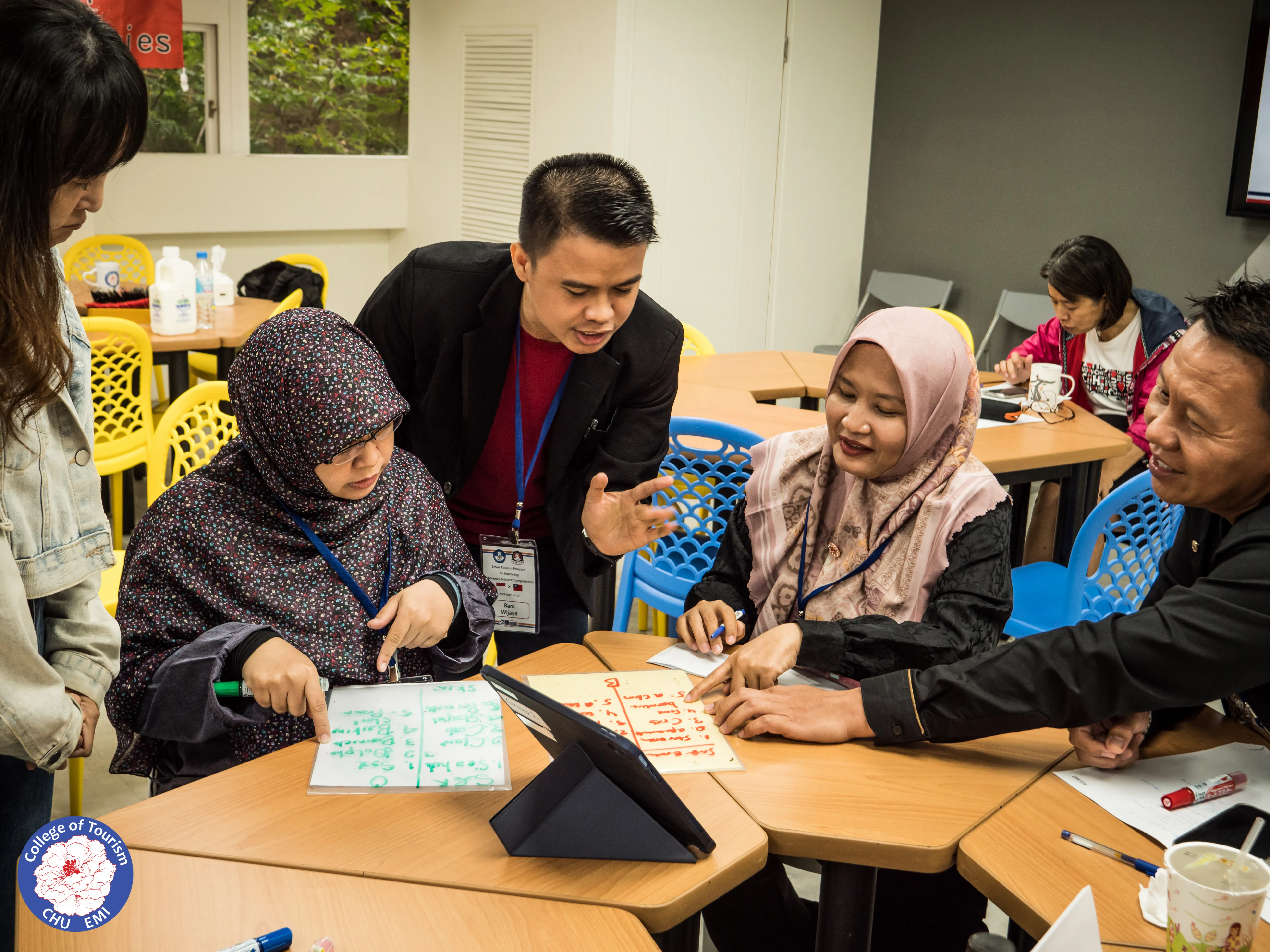
Impact of Cross-Cultural Collaboration
The programme highlighted the power of international collaborations in trainer and teacher development. By sharing experiences across countries, trainers and participants alike expanded their professional horizons and built connections that have the potential to foster future partnerships and innovation in EMI throughout the coming years.
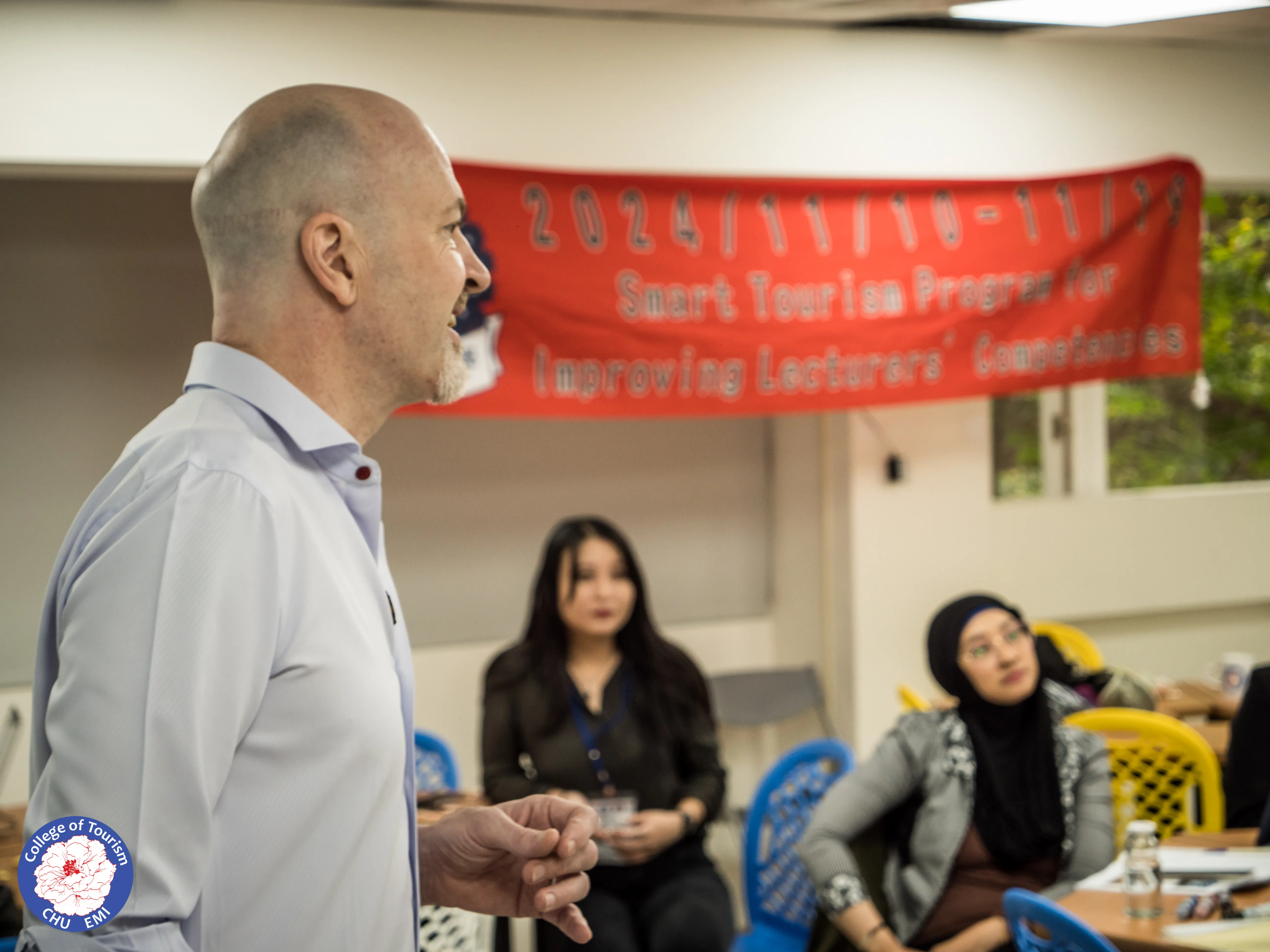
Participant Reflections – Key Benefits and Outcomes
The CERT PT programme made a deep impact on the nine Indonesian trainers and teachers who took part in the EMI training at CHU. Despite their diverse academic backgrounds, the participants consistently identified five core benefits from the programme that closely aligned with the insights shared by the trainer team:
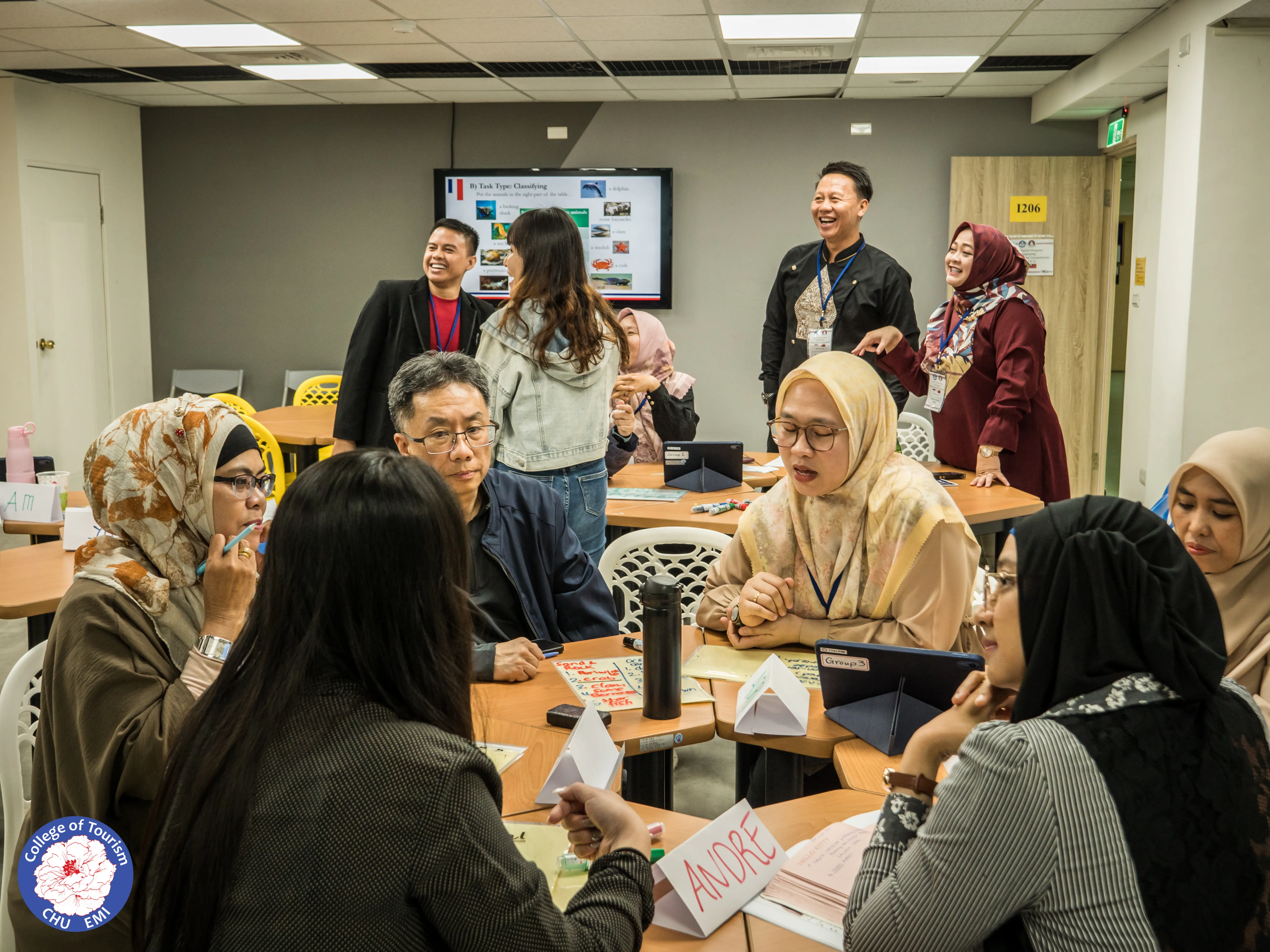
Reflective Transformation in Teaching Practice
Participants valued the opportunity to step back from their day-to-day routines and critically reflect on their teaching styles. Many acknowledged a shift from teacher-centered delivery toward more student-centered, interactive approaches. The workshops encouraged them to view their classrooms through the eyes of learners and reconsider how to spark motivation and engagement—particularly in light of the evolving educational landscape shaped by smartphones and other digital technologies.
Exposure to Practical, Student-Centered Strategies
A major highlight of the programme was the opportunity to explore and experiment with a range of interactive, inclusive, and cooperative teaching methods. Techniques such as using mini whiteboards, group reshuffling, incorporating matching tasks, jigsaw reading, and scaffolded activities made a strong impression. These approaches were especially valued for their adaptability across disciplines, enabling participants to personalize learning of both content and language while promoting critical thinking, collaboration, and active engagement.
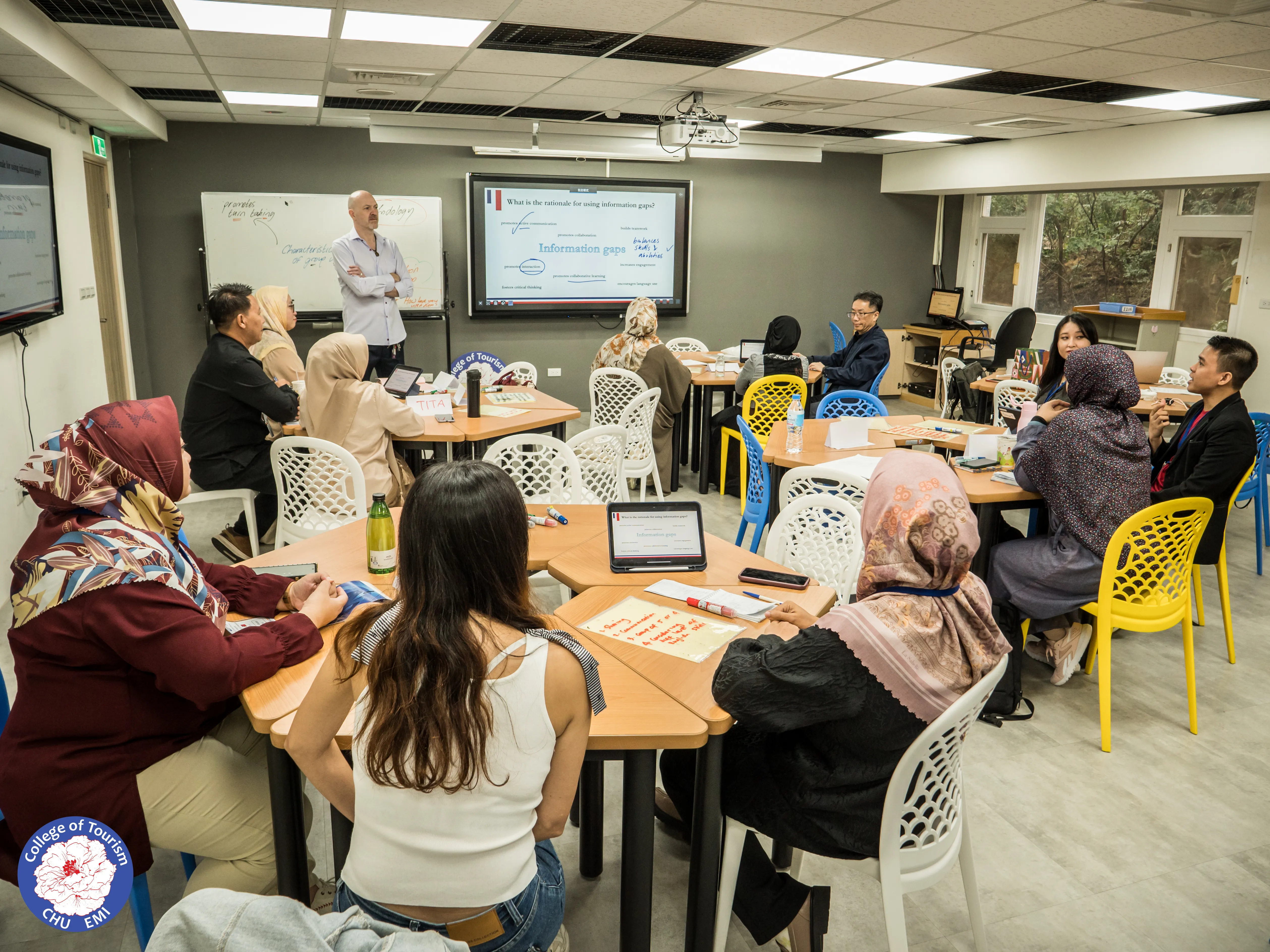
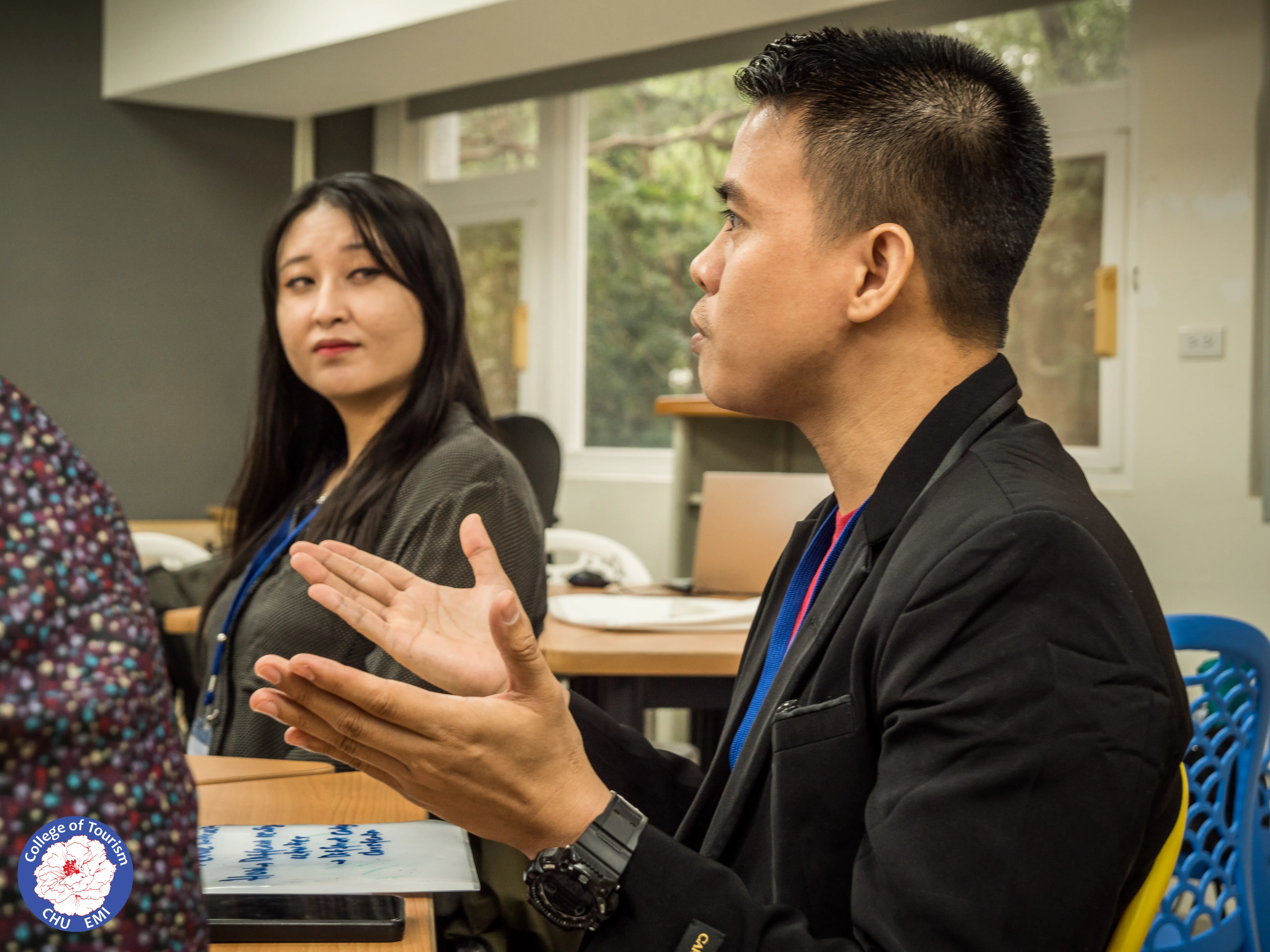
Clarifying Misconceptions and Deepening EMI Understanding
Several participants entered the programme with limited or unclear conceptions of EMI. Through structured training and guided reflections, they came to understand EMI as much more than just teaching in English. They recognised the importance of linguistic accessibility, cultural relevance, and learner support, particularly for students who may feel overwhelmed in all-English classrooms. This clarity helped demystify EMI and provided practical tools to implement it meaningfully across varied teaching contexts.
Reframing the Role of the Educator
The CERT PT experience encouraged participants to reconsider their roles not just as content experts, but as facilitators of learning and skills development. Many spoke of the value of "becoming students again" and gaining fresh insights from the learners’ perspectives. The emphasis on constructive feedback, empathy, creativity, and adaptability reinforced the idea of teaching as a dynamic and continuously evolving practice grounded in reflection and innovation.
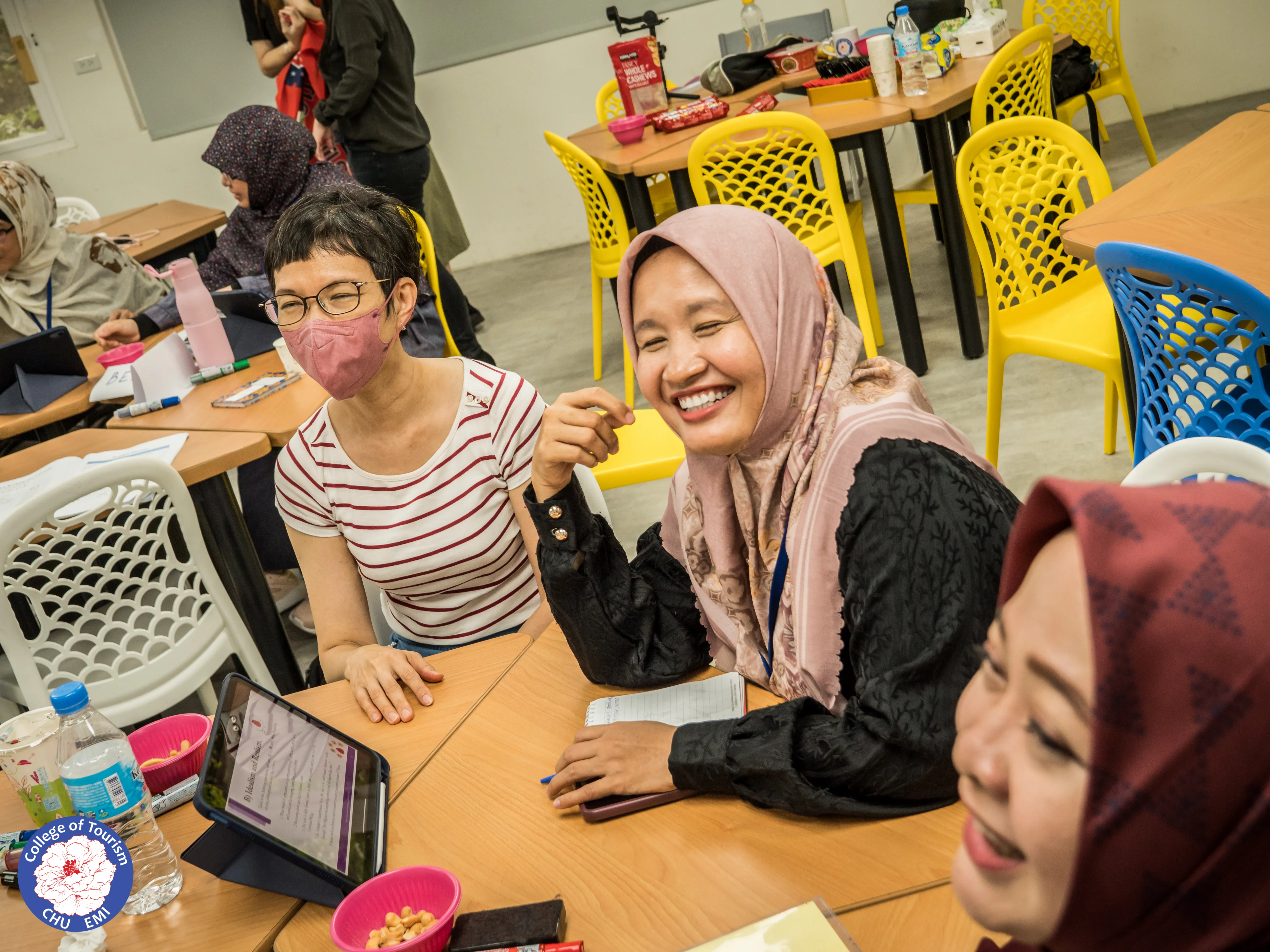
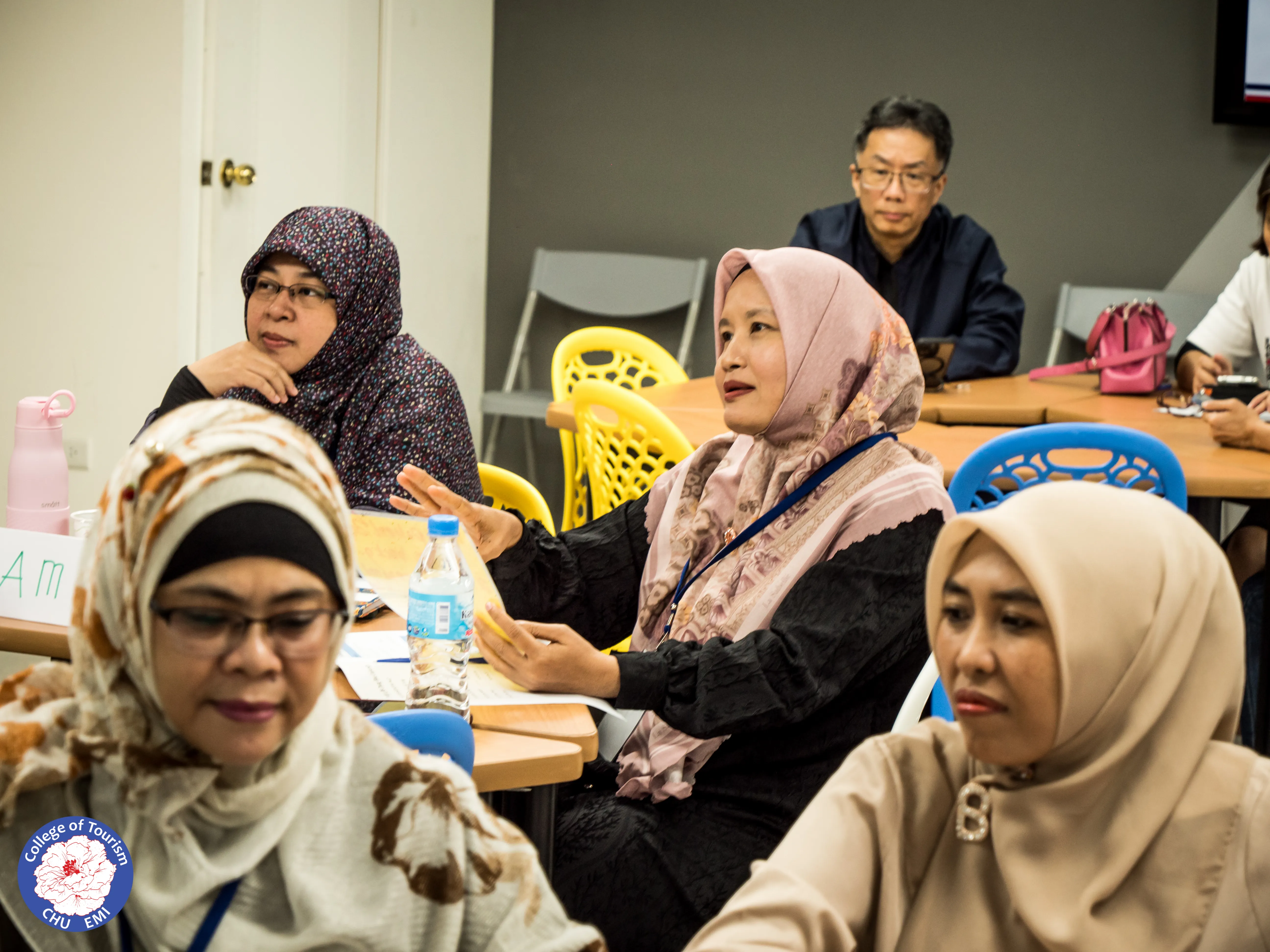
Fostering Collaboration
Participants highlighted the value of peer exchange and international collaboration throughout the programme. Exposure to different disciplines and teaching contexts helped broaden their understanding of global approaches to bilingual and EMI education. Many expressed increased confidence in aligning their teaching with Indonesia’s bilingual education goals and identified parallels with Taiwan’s Bilingual 2030 initiative. The programme laid important groundwork for ongoing mutual learning and professional exchange in the future.
Explore this holistic, interactive, and thought-provoking training programme — and be sure to join us next time! Contact us if you'd like us to set up a similar programme at your university.
